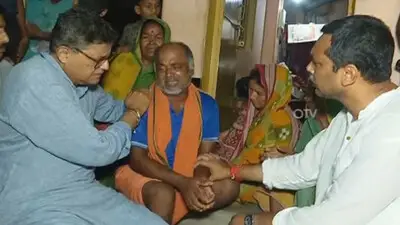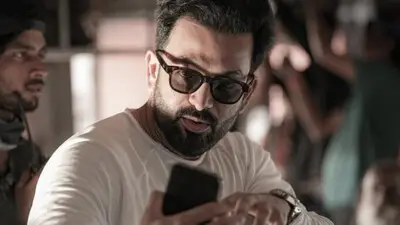Recommended Stories
Found from the archives of international news agency Associated Press (AP), the 1969 picture produced in the book "India's Biggest Cover-up" by researcher Anuj Dhar shows a Bose look-alike standing besides the Vietnamese delegation in Paris during truce talks with the US.
Intriguingly, the holy man "Bhagwanji", also known as "Gumnami Baba", had told his followers that he was present during the talks, says the book.
"This could be a picture of the 'Baba' and he could have been Netaji," Dhar told PTI.
The Mukherjee Commission, which had probed into the uncanny resemblance of the holy man with Bose, had rejected the opinion that he died in a plane crash in Taiwan on August 18, 1945.
Even Suresh Bose, one of the older brothers of Netaji and a member of the Netaji Subhas Chandra Bose Inquiry Committee, had stated on oath before his death in 1972 that his brother was alive at the time.
The rare black and white photograph shows the Vietnamese delegation led by their Nobel laureate leader Le Duc Tho at the first open session of the truce negotiations with an American delegation.
Clearly resembling Bose with his overall contour, a bearded man with an intense look on his face is standing alongside expressionless journalists and other officials behind the Vietnamese delegation.
"Much of his face is covered with moustache, beard and big-framed glasses. It is unusual for diplomats and southeast Asians to sport beards like this," Dhar writes in the book suggesting that he could be Bose.
The author, who spoke with followers of the holy man, says he has learnt that the "baba" not only took interest in make-up but also used to alter his facial features to avoid attention when he ventured out.
The "baba", identified by many Bose aides of unimpeachable integrity, spoke of his escape to the USSR, subsequent participation in the Vietnam war and blamed circumstances for his remaining in hiding in public interest.
He said his emergence could lead to India facing sanctions from world powers, says the book which chronicles the controversy surrounding Bose's reported death and "afterlife". He was last seen at the Bangkok Airport on 17th August 1945, since then no news of his whereabouts has been confirmed.
The book is based on records declassified by the US, British and Indian authorities and several documents that continue to be kept secret over 65 years after the incident.












